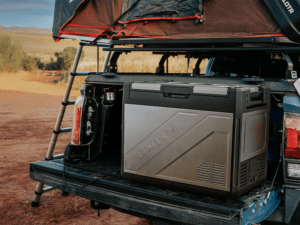
Exploring the great outdoors can be a rewarding experience, but can oftentimes take a toll on your muscles and endurance. Jogging, biking, hiking, and backpacking are just a few outdoor activities that are enjoyable to do. You should also be aware though that in these activities if there’s no pain, there is nothing to gain. Your physical fitness, your enhanced muscle condition, and your improved mental toughness are all achieved by overcoming the unpredictable outdoor conditions and recovering from the physical and mental exhaustion of outdoor activities.
Relaxation and recovery are important for any exercise, including outdoor workout. Read on as we share four effective ways to relax and recover after a grueling time outdoors.
1. Hyperbaric Oxygen Therapy
One effective way of getting your muscles relaxed, recovered, and ready for another round of action is to undergo hyperbaric oxygen therapy (HBOT). By getting inside a hyperbaric oxygen chamber, you are allowing the increase of oxygen volume in the blood to bring out various benefits not just for your muscles, but also for your whole body. Mild hyperbaric oxygen therapy allows the body to get enough oxygen to create adenosine triphosphate, also known as ATP, a molecule that carries energy within cells. Oxygen also helps flush out lactic acid, which causes muscle fatigue after an intense workout. With HBOT, your recovery time from an intense exercise at a gym or outdoors can be significantly reduced, which is why many professional athletes undergo HBOT for fast recovery and performance enhancement.
2. Cupping Therapy
Another therapy that’s making a buzz among athletes and fitness enthusiasts is cupping therapy. Many of us may recall the red circular marks on the swimmer Micheal Phelps’ body during the Rio Olympics. Cupping therapy involves placing cups on the skin for a few minutes to create suction. It promotes relaxation, recovery, and improved blood flow on the muscles where the cups are placed. Vitamins for inflammation also help relieve inflammation and pain and provide a type of deep-tissue massage to promote cell and tissue regeneration and give a feeling of rejuvenation after a grueling sports match, workout, or outdoor activity.
3. Massage Therapy
Nothing beats a hands-on approach when it comes to letting your muscles relax and recover. Whether you are doing a self-massage, using roller foams, or hiring a professional massage therapist to tend to your sore muscles, a well-applied massage that targets affected and nearby muscles can give a soothing and calming effect. It also promotes proper blood flow toward the affected muscles to promote healing and recovery. Massage therapy can also be done before a workout to keep the muscles in good condition.
There are many options for massage therapy. You can choose to find a therapist to focus on a certain sore area in your body or go for a full Swedish Massage. If you’re in the area, you can find Swedish Massage in Denver, CO.
4. Protein and Mineral Supplementation
Protein is a great muscle recovery nutrient that can be taken after an intense outdoor activity session or workout. Aside from protein supplement intake, maximize your protein intake by eating protein-rich foods such as lean meat cuts, eggs, cottage cheese, yogurt, etc. Potassium, sodium, and magnesium are minerals and electrolytes that get depleted after an intense exercise. These three minerals are important for proper muscle function, energy generation and distribution, proper heart function and blood pressure, and muscle recovery. Vegetables and fruits are good sources of magnesium, sodium, and potassium and should be part of a post-workout diet aside from taking mineral supplements. Taking a nutritional supplement such as Balance of Nature could help keep your body healthy and energized.

There are many other effective ways of relaxing your tired muscles and body and promoting speedy recovery after a grueling outdoor activity or workout. As you get to regularly do exercises or outdoor workouts, you also get to know your body more and what needs to be done to relax and recover. Knowing what your body needs can help you make smart choices and select simple yet effective options to get yourself properly relaxed and hasten your recovery to be ready for another challenge.








